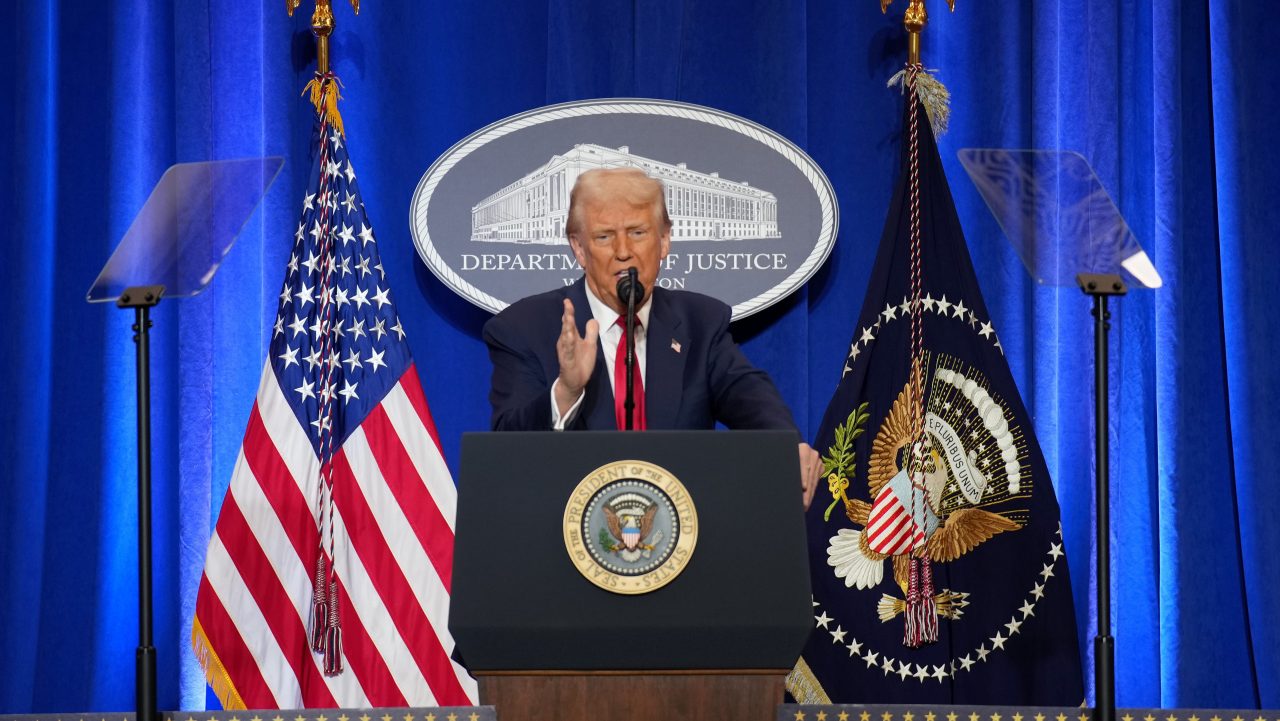
Skadden, Arps, Slate, Meagher & Flom (Skadden) has joined Paul Weiss as an elite, international law firm with deep sports industry ties to strike a deal with President Donald Trump.
Trump announced on Friday that Skadden will provide “at least $100 million dollars in pro bono legal services” to causes that both he and the firm support. The president listed veterans, law enforcement and first responders among the groups that will gain from this initiative. Trump added that Skadden “will not engage in illegal DEI discrimination and preferences” and “will not deny representation to clients” who have historically not been represented by elite firms “because of the personal political views of individual lawyers.”
Jeremy London, Skadden’s executive partner, issued a statement saying his firm is “pleased” to have reached an agreement. London said the deal reflects an outcome that “is in the best interests of our clients, our people and our firm.”
Skadden has a long and distinguished history in sports law. The firm has represented the major pro leagues, numerous teams within those leagues, the NCAA, the PGA Tour, the United States Tennis Association and many other major sports clients. Representation has occurred in litigation, intellectual property negotiations, labor and employment disputes, mergers and acquisitions, stadium financing deals and assorted other matters. Earlier this month, Skadden attorneys petitioned the U.S. Supreme Court for a writ of certiorari on behalf of the NBA in a case involving the federal Video Privacy Protection Act. Some of the country’s most prominent sports attorneys have practiced at Skadden. Former NBA executive vice president and chief legal officer Jeffrey Mishkin practiced at Skadden as the league’s chief outside counsel for years.
Skadden’s move likely preempts Trump from taking adverse action against the firm over political and policy disagreements. The New York Times reported on Thursday that Skadden was attempting to negotiate a deal so Trump wouldn’t issue an executive order with adverse consequences for the firm.
In recent weeks, Trump has used executive orders and memorandums against Paul Weiss (until the firm cut a deal with Trump), Covington & Burling, Perkins Coie, Jenner & Block and WilmerHale. Trump’s stated reasonings for his actions have included his opposition to DEI programs and his objections to the firms employing or representing individuals whom Trump opposes. Former special counsels Robert Mueller and Jack Smith and the presidential campaigns of former U.S. Secretary of State Hillary Clinton, former President Joe Biden and former Vice President Kamala Harris are among those connected to the targeted firms.
The president’s measures have included the stripping of security clearances, limiting access to government buildings and increasing governmental review of federal contracts with firms’ clients. Those moves could greatly damage the firms or even cause them to implode. Clients, fearful of retaining lawyers who have run afoul of Trump and knowing that their dealings would face added federal scrutiny, could consider hiring different law firms. Likewise, partners and other attorneys with books of business could seek new employment at firms that haven’t been targeted by the president.
Of course, the opposite could prove true. Some clients and attorneys at the aforementioned firms might seek other firms because they oppose negotiating a deal with Trump. One now former Skadden attorney, Rachel Cohen, resigned over her firm’s approach.
While Paul Weiss and Skadden have elected to negotiate resolutions with Trump, other firms targeted by the president are going on offense.
WilmerHale, for example, filed a lawsuit against the administration on Friday. The firm’s complaint was drafted in part by Paul Clement, who served as solicitor general under President George W. Bush and who successfully argued for the NFL in the 2011 lockout and Deflategate cases, and by Erin Murphy, who has successfully argued cases before the U.S. Supreme Court and argued on behalf of the NFL in a case involving running back Ezekiel Elliott.
WilmerHale notes that the right to counsel “is the foundation for our adversary system” and that it includes representing unpopular clients and controversial causes. The firm warns Trump’s punishments of firms could diminish the independence of lawyers and force them to embrace viewpoints of whichever group happens to hold governmental power.
Along those lines, WilmerHale argues Trump’s executive orders represent “an unprecedented assault” on fundamental principles of the practice of law. His moves are described as “an undisguised form of retaliation for representing clients and causes he disfavors or employing lawyers he dislikes.” The complaint argues the administration is in violation of violating the First Amendment through retaliation, viewpoint discrimination, free association and other claims.

